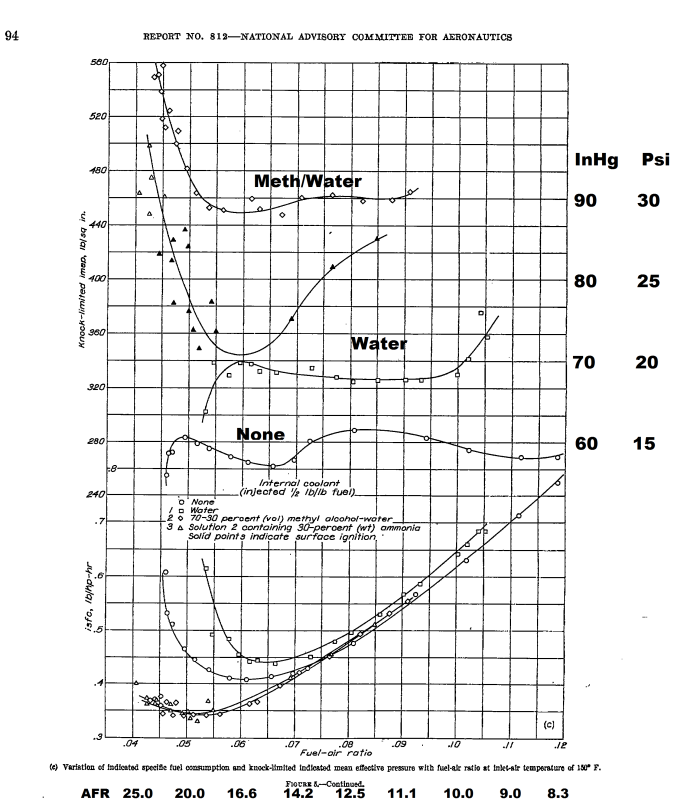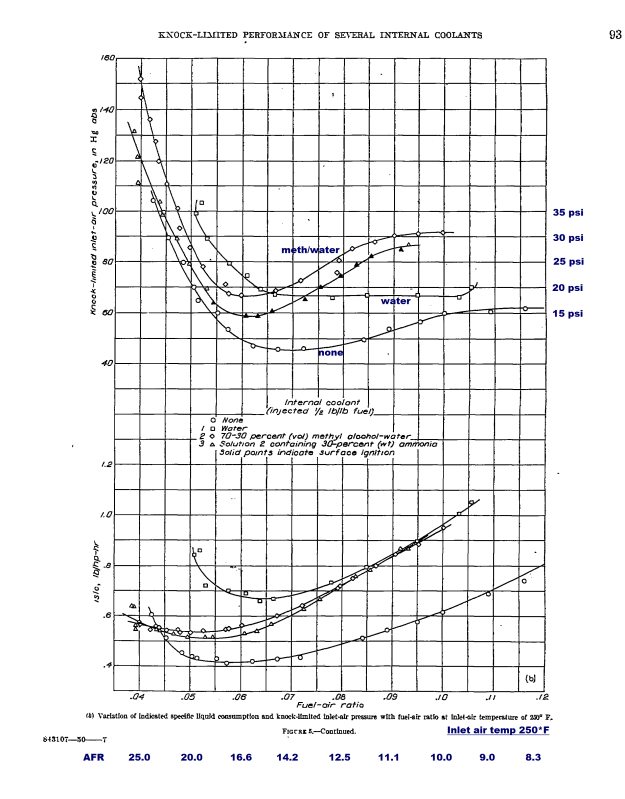|
|||||||
| Rotary Tech - General Rotary Engine related tech section.. Tech section for general Rotary Engine... This includes, building 12As, 13Bs, 20Bs, Renesis, etc... |
|
|
Thread Tools | Display Modes |
|
|||||||
| Rotary Tech - General Rotary Engine related tech section.. Tech section for general Rotary Engine... This includes, building 12As, 13Bs, 20Bs, Renesis, etc... |
|
|
Thread Tools | Display Modes |
|
|
#4 |
|
Rotary Fanatic
Join Date: Feb 2008
Location: Slidell, LA
Posts: 191
Rep Power: 18  |
Compare the knock limit pressures when the inlet air temp goes from 150*F to 250*F.
Water stays about the same but the the meth/water curve drops below water when lean. Remember this when designing safe guards to cut boost if the injectorant pressure is lost. Also consider the consequences of not running a cold air inlet! Barry  
|
|
|

|
| Bookmarks |
|
|